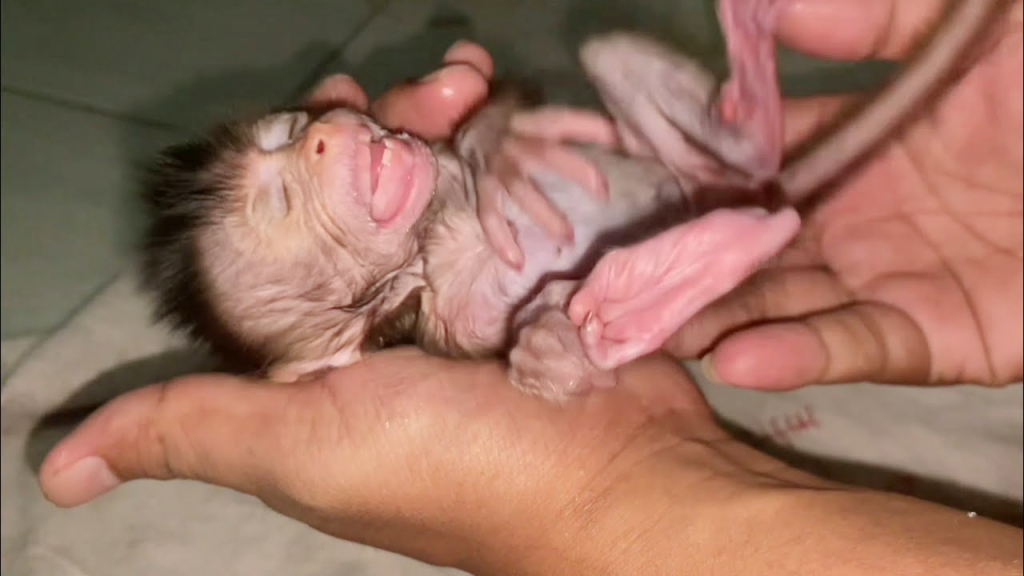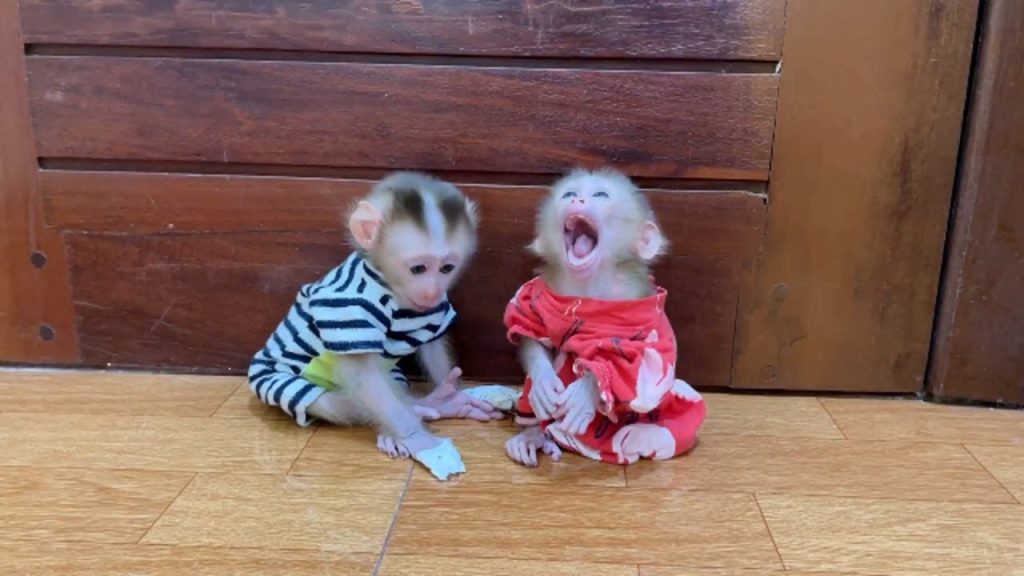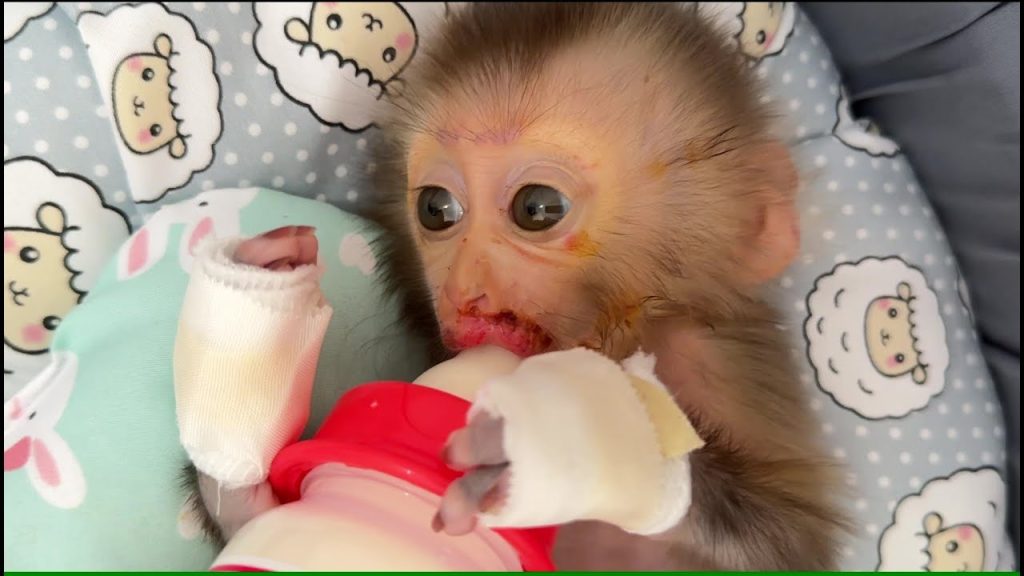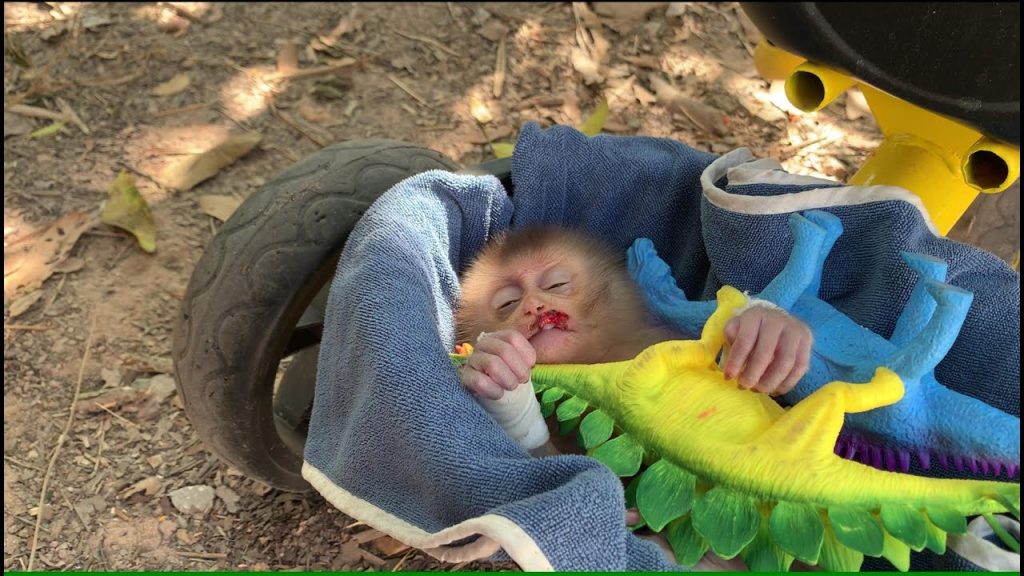
For most people, the words “newborn baby monkey” instantly evoke softness, tiny fingers, and gentle squeaks. People imagine something fragile, tender, dependent, barely able to hold onto its mother’s fur. And yes — the body is tiny and delicate. But behavior does not always match the stereotype. Some newborn monkeys come into the world with fire already burning in them — snarling, clinging, shoving, pushing, screeching — as if the first breath of life also activates a wild spark inside.
This aggressive energy is not “evil.”
It is survival instinct in its purest, rawest form.
Newborn animals in the wild are not cute plush toys. They are born directly into competition — for milk, for warmth, for nipple space, for attention, for a mother’s safe chest. Unlike human babies who are protected by culture, houses, hospitals, bottles, blankets, cameras — a newborn monkey is born into a jungle of hierarchy from second one. There is no buffer. There is no gentleness guaranteed. Their fight response activates immediately because nature demands it.
So a newborn monkey may bite its sibling’s finger just to secure better latch position. It may shriek explosively if another body shifts too close. It may thrash its little arms as if possessed. The mother usually holds them tightly — but even while hugging — you can see that fast, hyper intensity in their eyes. They are not slow or calm. They are wired — like their nervous system is a live electric fuse. That “aggression” is not cruelty. It is instinctual physics: life must assert itself to keep itself.
Humans often misunderstand this.
We apply human moral words — “aggressive,” “mean,” “naughty” — to behaviors that are actually ancient animal survival algorithms. In scientific ethology, newborn primate aggression is not a personality flaw — it is a developmental strategy to secure advantage early. A newborn monkey’s pushy energy is a prototype for future troop hierarchy. The tiny body is rehearsing dominance that might later determine status, mate access, food priority, and social leadership.
Ironically, the fierceness we judge as “too much” — may be the very engine that keeps that newborn alive long enough to someday become an adult.
In nature, the soft do not always survive.


